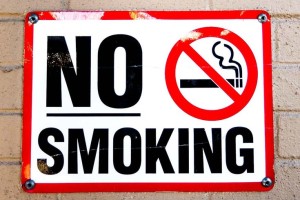
QUEZON CITY, (PIA)—A the nation observe National No Smoking Month this June, the Civil Service Commission (CSC) reiterates its advocacy against smoking within the bureaucracy as adopted and promulgated through CSC Memorandum Circular (MC) No. 17, s. 2009 or the Smoking Prohibition Based on 100% Smoke-Free Environment Policy.
CSC Chairperson Karlo Nograles said this is not just for the welfare of civil servants but of all individuals visiting government offices as well.
“Ang paninigarilyo ay nananatiling isa sa mga pangunahing sanhi ng pagkakaroon ng malulubha at nakamamatay na mga sakit, kaya nananawagan ako sa lahat ng government agencies na istriktong ipatupad ang ating polisiya laban sa paninigarilyo sa mga government premises, para sa kapakanan ng ating mga kawani at lahat ng mga taong pumupunta sa ating mga tanggapan,” said Chairperson Nograles.
The Smoke-Free Environment Policy absolutely prohibits smoking in the premises, buildings, and grounds of government agencies providing health, education, and/or social welfare and development services such as hospitals, health centers, schools and universities, colleges, among others. This means no smoking areas may be designated or established in these places.
For all other government agencies not part of the aforementioned absolute prohibition, they are allowed to have one (1) designated smoking area in their premises with the following conditions: located in an open space with no permanent or temporary roof or walls in an outdoor area; not located within 10 meters of entrances, exits, or any place where people pass or congregate; does not have an area larger than 10 square meters; and have highly visible and prominently displayed "Smoking Area" signages. Moreover, food and drinks are not allowed to be served in the designated smoking area.
Government officials and employees are also prohibited from engaging in unnecessary interactions with the tobacco industry under CSC-Department of Health (DOH) Joint Memorandum Circular 2010-01 or the Protection of the Bureaucracy Against Tobacco Industry Interference.
According to the said rule, prohibited acts include giving preferential treatment such as incentives or exemptions to the tobacco industry; soliciting or accepting gifts, donations, and sponsorships in connection with any operation or transaction of their office; and having financial or material interest in any transaction involving the tobacco industry requiring the approval of their office.
The CSC Chair strongly emphasized the importance of government agencies rallying behind the implementation strategy for health promotion outlined in the Joint Administrative Order No. 2023-0001 or the National Policy Framework on the Promotion of Healthy Workplace.
Launched by the CSC, DOH, and Department of Labor and Employment on 28 April 2023, the policy framework's primary objective is to foster and establish healthy workplaces, with a particular focus on addressing substance use, particularly tobacco use, as one of the priority areas requiring health promotion interventions.
“The deadly effects of smoking not only on the smoker’s health but also for non-smokers who become victims of secondhand smoking are well-documented, with studies linking it to various health conditions such as cardiovascular disease, cancer, and respiratory issues. It is a major public health concern, and as civil servants, it is our sworn duty to lead the way in curbing issues that are detrimental to public interest,” Nograles said.
Pursuant to Presidential Proclamation No. 183, s. 1993, June is celebrated nationwide as National No Smoking Month.
The proclamation extends the observance of World No Tobacco Day, which is observed annually on 31 May to a whole month in order to intensify the campaign against smoking by raising public awareness of its ill effects. (csc/pia-ncr)



